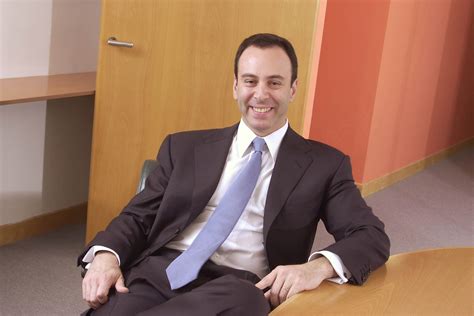A Quote by Clayton M. Christensen
Many think of management as cutting deals and laying people off and hiring people and buying and selling companies. That's not management, that's deal making. Management is the opportunity to help people become better people. Practiced that way, it's a magnificent profession.
Related Quotes
I think stupidity in business is really an interesting thing. What winds up happening is a disconnect between your company's strategic management and then your more applied on-the-street management. I guarantee with you that the board of directors of most companies has no idea what the costs of hiring people really is in the HR department.
Companies, as they grow to become multi-billion-dollar entities, somehow lose their vision. They insert lots of layers of middle management between the people running the company and the people doing the work. They no longer have an inherent feel or a passion about the products. The creative people, who are the ones who care passionately, have to persuade five layers of management to do what they know is the right thing to do.
Management did not emanate from nature. Management is not a tree: it's a television set. Somebody invented it. It doesn't mean it's going to work forever. Management is great. Traditional notions of management are great if you want compliance. But if you want engagement, self-direction works better.
The management of creativity is more intimate. By that I mean that it deals with an individual's personal, psychological landscape. It deals with the way you create relationships. It deals with creating an atmosphere and environment that support the creative process. As a result, it is a management skill set that is inherently psychological and that encourages desired outcomes rather than demands those outcomes.
This idea of anticipation is key to investing and to business generally. You can't wait for an opportunity to become obvious. You have to think, "Here's what other people and companies have done under certain circumstances. Now, under these new circumstances, how is this management likely to behave?"
I think there are probably too many asset management companies in the world, and I think the place to be is either big or small. The area where it is probably more difficult to be is in the middle ground, where you've got that cost of regulation, you've got the cost of buying your own research, you've got all the costs of running an asset management company without the benefits of a big income producing asset.
































